Sujeong You
Self-Supervised Learning with Probabilistic Density Labeling for Rainfall Probability Estimation
Dec 08, 2024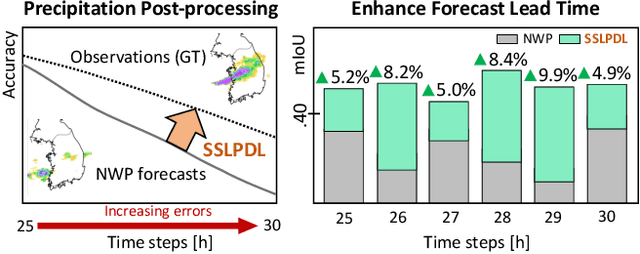

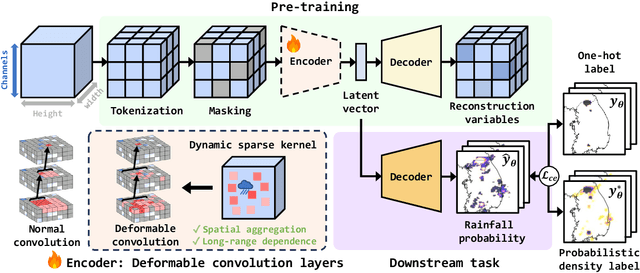

Abstract:Numerical weather prediction (NWP) models are fundamental in meteorology for simulating and forecasting the behavior of various atmospheric variables. The accuracy of precipitation forecasts and the acquisition of sufficient lead time are crucial for preventing hazardous weather events. However, the performance of NWP models is limited by the nonlinear and unpredictable patterns of extreme weather phenomena driven by temporal dynamics. In this regard, we propose a \textbf{S}elf-\textbf{S}upervised \textbf{L}earning with \textbf{P}robabilistic \textbf{D}ensity \textbf{L}abeling (SSLPDL) for estimating rainfall probability by post-processing NWP forecasts. Our post-processing method uses self-supervised learning (SSL) with masked modeling for reconstructing atmospheric physics variables, enabling the model to learn the dependency between variables. The pre-trained encoder is then utilized in transfer learning to a precipitation segmentation task. Furthermore, we introduce a straightforward labeling approach based on probability density to address the class imbalance in extreme weather phenomena like heavy rain events. Experimental results show that SSLPDL surpasses other precipitation forecasting models in regional precipitation post-processing and demonstrates competitive performance in extending forecast lead times. Our code is available at https://github.com/joonha425/SSLPDL
Self-supervised Pre-training for Precipitation Post-processor
Oct 31, 2023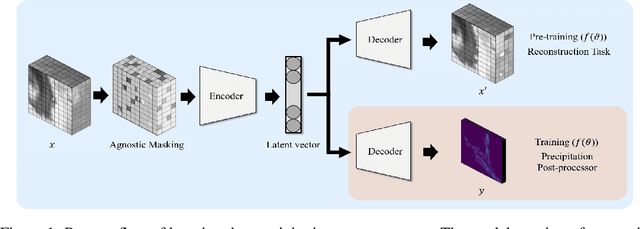

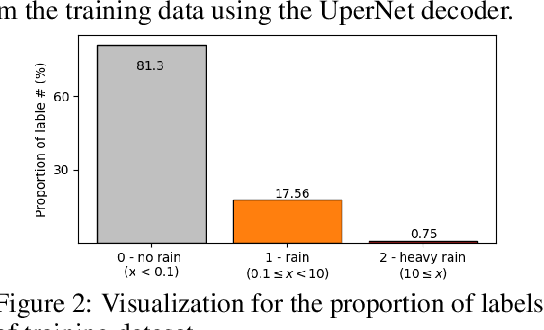
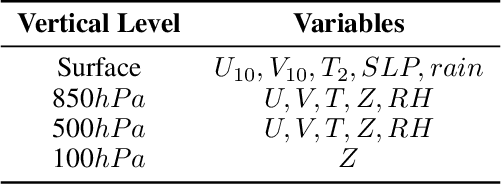
Abstract:Securing sufficient forecast lead time for local precipitation is essential for preventing hazardous weather events. Nonetheless, global warming-induced climate change is adding to the challenge of accurately predicting severe precipitation events, such as heavy rainfall. In this work, we propose a deep learning-based precipitation post-processor approach to numerical weather prediction (NWP) models. The precipitation post-processor consists of (i) self-supervised pre-training, where parameters of encoder are pre-trained on the reconstruction of masked variables of the atmospheric physics domain, and (ii) transfer learning on precipitation segmentation tasks (target domain) from the pre-trained encoder. We also introduce a heuristic labeling approach for effectively training class-imbalanced datasets. Our experiment results in precipitation correction for regional NWP show that the proposed method outperforms other approaches.
 Add to Chrome
Add to Chrome Add to Firefox
Add to Firefox Add to Edge
Add to Edge